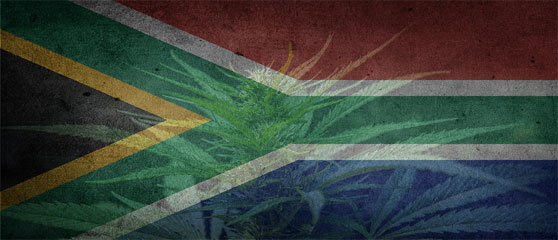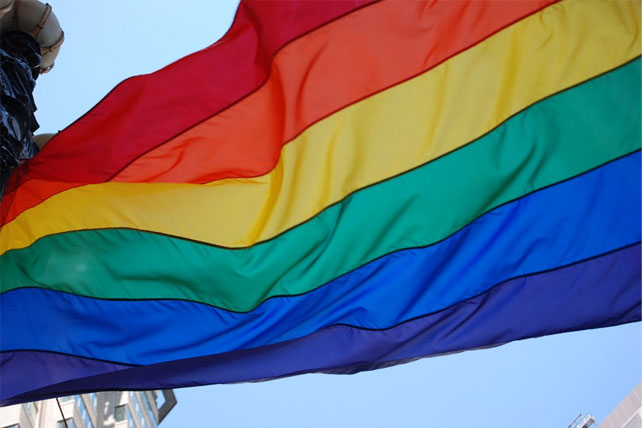This past winter and spring, Tbilisi, the capital of Georgia, nestled in the South Caucasus mountains bridging Europe and Asia, was engulfed in mass protests. Chaotic street battles saw riot squads deploy water cannons, tear gas and severe beatings, leaving protesters with shattered limbs, swollen faces and concussions. The crowds responded by opening fire with makeshift firework cannons.
The protesters believed the ruling Georgian Dream party rigged the latest election and is now steering the country in an unwelcome direction, away from the European Union and politically closer to neighbouring Russia. Among other measures, the government passed a “foreign agent” law making it more difficult for internationally funded NGOs to operate. That, too, stoked mass protests.
A recent report by Transparency International (TI) highlighted new police tactics to punish protestors. TI retold the story of the arrest of four protesters – Giorgi Akhobadze, Nikoloz Katsia, Anton Chechin, and Tedo Abramov – who were detained and prosecuted on dubious drug charges.
After receiving “operational information” from a confidential source, the police pulled over Akhobadze, a doctor, on his way back from a rally, discovering 3.7 grams of alpha-PVP on him. Akhobadze insists it was planted; while his DNA was found on the packages, he claims the cops swabbed his mouth to get a sample of his saliva. Akhobadze’s mother died while he was in custody.
The same “operational information” was used to pick up Russian dissident Anton Chechin, a teetotal non-smoker who fled his homeland and joined the demonstrations in Tbilisi. Katsia was stopped outside his home by plainclothes cops who found 14 grams of cocaine on him. During his arrest, the officers reportedly made fun of his stammer. Abramov, a 22-year-old boxer, was supposedly carrying five grams of MDMA to a protest where, it’s safe to say, there was a distinct lack of house music. Attending protests while carrying large amount of party drugs is an odd thing to do, let alone happening four times.
But wait, there’s more.
In December, two more anti-Putinist Russians, Anastasia Zinovkina and Artem Gribul, were arrested in Tbilisi with 16 grams of amphetamines. The pair had moved to Georgia after the Ukraine invasion and participated in recent rallies handing out free tea and coffee. Gribul claimed the arresting officers explicitly told him this was punishment for participation in the protests, while Zinovkina said an officer grabbed her crotch and threatened to “punish her with this part of my body.” Their lawyer argues the lack of corroborating evidence points to manipulation.
Drug planting: an old tactic of evidence manufacturing?
“In recent years, drug planting by police has become a serious issue in Georgia,” explained Temo Khatiashvili, head of local harm reduction NGO Mandala.
“There have been many cases where, after looking into the details, it becomes clear that something isn’t right – key procedures are often violated, which raises strong suspicion that drugs may have been planted on purpose. Common red flags include: police officers being the only witnesses, no video footage from the scene, and mismatched times between the arrest and the official paperwork.
The people most often targeted tend to be civil activists – especially those who’ve had any past or present connection to drugs. In recent cases, there’s been a noticeable trend of planting large quantities of drugs, which under Georgian law can lead to sentences of up to 20 years or even life. This points to a harsher, more punitive approach.”
The weaponisation of drug laws is nothing new. During the Nixon era, the US government used the same tactics on anti-war protestors and civil rights activists.
“The Nixon campaign in 1968, and the Nixon White House after that, had two enemies: the anti-war left and black people. You understand what I’m saying?” a Nixon aide later admitted as much. “We knew we couldn’t make it illegal to be either against the war or black, but by getting the public to associate the hippies with marijuana and blacks with heroin, and then criminalizing both heavily, we could disrupt those communities. We could arrest their leaders, raid their homes, break up their meetings, and vilify them night after night on the evening news. Did we know we were lying about the drugs? Of course we did.”
At the time, radical circles were under surveillance and infiltration by the FBI, whom J. Edgar Hoover specifically directed agents to bust on narcotics charges. Black activist Lee Otis Johnson was handed a 30-year term for sharing a spliff, while John Sinclair of Detroit’s chapter of the White Panther Party was sentenced to 10 years for the same.
Same practice, different purposes
The practice of planting drugs has long been carried out in Russia, where since at least the 1990s cops have made a living of shaking down suspects to compensate for their nearly non-existent salaries. It’s no surprise a culture of corruption flourished. The police have a database of known addicts to determine where to plant drugs or set up stings. This is usually done to wring out a bribe or meet arrest quotas.
But sometimes there can be other reasons, too.
Most famously, in 2019 reporter Ivan Golunov was working on a story about the murky funeral industry for independent media outlet Meduza when the cops planted mephedrone and cocaine in his backpack. He was released days later following mass protests; the five cops who framed him were detained before being carted off to penal colonies. Golunov said he was happy with the verdict but added the masterminds should also be brought to justice.
In Kyrgyzstan, too, journalists exposing government corruption have been arrested on dodgy drug charges. The taboo around drugs means they’re an easy way to demonise the opposition. Who’s going to trust a “junkie”? Like Georgia, the Kyrgyz government is rapidly becoming more authoritarian as it sinks closer into Moscow’s orbit.
Georgia’s increasingly punitive drug war
Georgia, the birthplace of Stalin, has long had among the harshest drug laws in Eurasia, especially after 2006 when then-President Mikheil Saakashvili declared a “zero-tolerance” policy as part of his campaign against organised crime (which was indeed a menace to Georgia). Partly as a result, by 2011 the prison population tripled.
Drug convicts were banned from driving, and working as doctors, lawyers, or teachers. The police could detain you for up to twelve hours to compel you into taking a drug test, and even tiny quantities barely visible to the naked eye could get you locked away for years.
Throughout it all, the police have used underhand tactics such as bullying, intimidation, and planting dope. Indeed, as Transparency International noted, the charges against the protesters are strikingly similar to seven earlier cases brought before the European Court of Human Rights (ECHR), in which the claimants accused the Georgian police of mounting a search based on “operational information” from unknown sources before framing them. In each case, the ECHR ruled the police evidence was unreliable, obtained under questionable pretexts, and in one instance, unconstitutional, since relying on anonymous tip-offs jeopardises the right to a fair trial.
Meanwhile in April, the state passed a new law against the state’s supposed “liberal drug policy”. Urine tests are now mandatory, with refusal punishable by a ₾2,000 ($730) fine, with up to two years’ coerced rehabilitation for anyone the state deems to be an “addict.” The penalty for distribution, meanwhile, has been raised from 10-15 years to life.
Suspicious timing
“In my opinion, this is about tightening control ahead of upcoming protests or political unrest. The government seems to be building up its tools for repression — and stricter drug laws are one part of that,” observed Khatiashvili.
“At the same time, drug-related problems like overdoses are getting worse, and the country doesn’t have enough services to help. The government is responding with tough policies that sound good to the public but don’t actually solve the deeper issues. For drug users, this means more fear, more stigma, and less willingness to reach out for help.”
Anyone crossing paths with law enforcement now has much more to fear.
“We’ve already seen cases of planted evidence, threats, and politically-motivated charges. Especially when someone is accused of possessing a “large quantity” of drugs – which can mean up to 20 years or life in prison – it becomes a powerful way to intimidate or silence people.”
“The harsher the penalties, the more power the police have – and without proper oversight, that opens the door to abuse,” Khatiashvili added.


